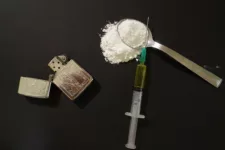Heroin addiction is a serious problem that can have devastating effects on individuals and their loved ones. It is a highly addictive substance that can cause physical and psychological dependence, making it difficult to quit without professional help. In this article, we will discuss heroin addiction treatment and the different options available for individuals struggling with heroin addiction.
Heroin addiction treatment typically involves a combination of medication-assisted treatment (MAT) and behavioral therapies. MAT involves the use of medications such as methadone, buprenorphine, or naltrexone to help manage withdrawal symptoms and cravings. These medications can be effective in reducing the risk of relapse and improving overall treatment outcomes.
Behavioral therapies are also an important component of heroin addiction treatment. These therapies can help individuals identify the underlying causes of their addiction, develop healthy coping mechanisms, and learn skills to manage cravings and triggers. Behavioral therapies may include cognitive-behavioral therapy (CBT), contingency management, or motivational interviewing.
Medication and behavioral therapies, heroin addiction treatment may also include support groups such as Narcotics Anonymous (NA) or other peer support programs. These programs provide a supportive environment where individuals can connect with others who understand their experiences, share their successes and challenges, and receive encouragement and guidance.
When choosing a heroin addiction treatment program, it is important to find a program that is tailored to your individual needs and preferences. Look for a program that offers a range of treatment options, including medication-assisted treatment and behavioral therapies. It is also important to find a program that is staffed by professionals who are experienced in working with individuals with heroin addiction.
There are also alternative therapies that may be helpful for individuals with heroin addiction. These may include mindfulness-based therapies, acupuncture, or yoga. Alternative therapies can be particularly effective for individuals who have difficulty expressing themselves through traditional talk therapy.
It is also important to address any co-occurring mental health issues that may be contributing to or exacerbating heroin addiction. Many individuals with heroin addiction also struggle with depression, anxiety, or other mental health disorders. Treating these disorders in conjunction with heroin addiction can improve treatment outcomes and reduce the risk of relapse.
It is important to find a treatment program that is tailored to your individual needs and preferences and is staffed by professionals who are experienced in working with individuals with heroin addiction. If you or someone you know is struggling with heroin addiction, don’t hesitate to reach out for help and support. With the right treatment and support, recovery from heroin addiction is possible.
Written by Jake Gibson








